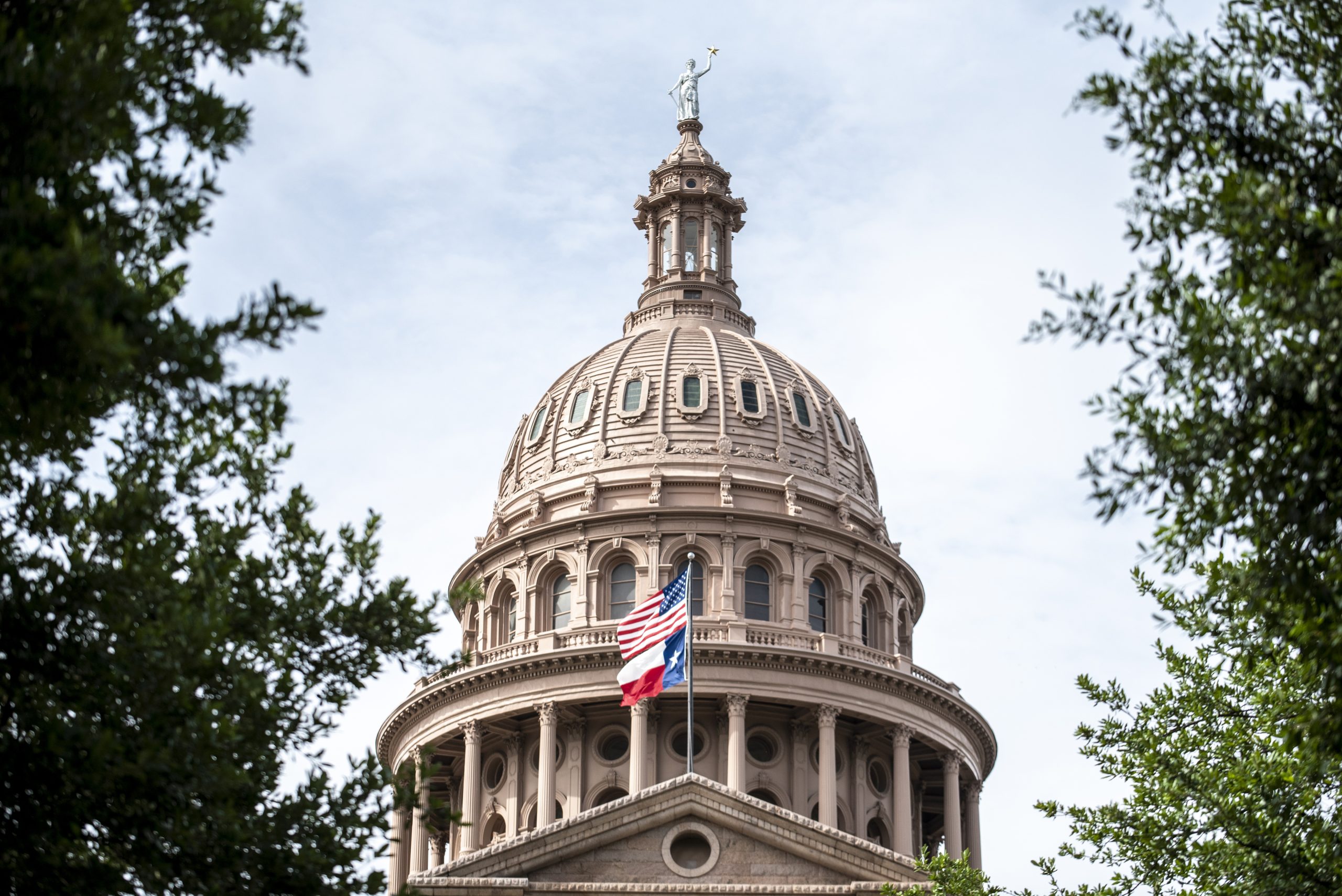Texas lawmakers have passed legislation that would effectively ban consumable hemp products containing any amount of THC, sending the measure to Gov. Greg Abbott for his consideration.
THC, or tetrahydrocannabinol, is the main psychoactive compound in cannabis. Hemp, a variety of the cannabis plant, contains trace amounts.
The Texas House gave initial approval to Senate Bill 3 late Wednesday in a 95–44 vote.
Under the bill, introduced by Republican Sen. Charles Perry, possessing hemp products with any amount of THC could result in a misdemeanor punishable by up to a year in jail. Manufacturing or selling these products could lead to felony charges and up to 10 years in prison.
Lt. Gov. Dan Patrick, who championed the bill, said in a video that THC products are “being sold to schoolchildren all across Texas.”
“This is poisonous. THC—no regulations whatsoever. No one knows what’s in it,” he said.
“Just in the last three years, over 8,000 plus smoke shops and vape shops have opened up in Texas,” he said.
“We can’t regulate it. We don’t have enough police to check every store,” Patrick said. “It’s an $8 billion industry. They’re making it off the backs of our children and young adults, and their lives are going to be changed forever. Schizophrenia, paranoia, suicide.”
Steve Dye, chief of Allen Police Department, added that “products containing synthetic THC variants are incorrectly tested and intentionally mislabeled by out-of-state laboratories over which Texas law enforcement has zero oversight and enforcement.”
Critics of the ban argue that the bill “carves out a narrow exemption for hemp research at institutions of higher education,” choosing “criminalization over regulation.”
“This bill does not protect kids. It does not improve product safety. It does not ensure transparency in the growing and retail hemp industry,” the Texas Cannabis Policy Center said in the statement, adding that the bill “hands a multibillion-dollar industry to the illicit market—where there are no product testing requirements, no labeling standards, and no business licenses.”
“Texans will continue to access hemp-derived THC, but now they’ll do so in the shadows, without consumer protections or recourse,” the statement read. “The only way to protect public health and safety is through smart regulation—not prohibition. We regulate alcohol, a far more dangerous substance. We can do the same with hemp-derived THC.”
More Medical Pot
The legislative action to ban non-medical THC comes alongside efforts to expand the state’s limited medical marijuana program, known as the Texas Compassionate Use Program (TCUP).
A separate bill, House Bill 46, which has received initial approval in the House on May 12, aims to broaden medical marijuana accessibility by increasing the number of licensed dispensing organizations from three to 15, allowing for satellite locations to improve patient access across the large state.
The list of qualifying medical conditions is expanding to include chronic pain and other ailments, and permitting different product forms like approved inhalers and vaping devices.
Supporters of the ban argue that this expanded medical program is the proper, regulated avenue for patients seeking cannabis-based treatments, rather than relying on unregulated retail products.
Hemp Industry Braces for Blow
Local media outlets have reported that retailers expect the ban to have a “devastating” impact on the hemp industry in Texas.
According to a Whitney Economics report, the hemp industry is a major contributor to the state’s economy. The report, titled “Hemp Derived Cannabinoids in the Lone Star State: An Economic Impact Analysis of Cannabinoid Retail in Texas,” estimated that in 2023, cannabis businesses generated more than $8 billion in revenue and employed more than 50,000 workers.
A more recent 2025 report from Whitney Economics states the industry generated $5.5 billion in annual sales and had an overall economic impact of $10.3 billion, supporting over 53,300 jobs.
Industry leaders have stated they plan to file a lawsuit to challenge the ban, arguing it will eliminate tens of thousands of jobs and strip billions from the state’s economy.
“The bill will still need to be signed by the governor before becoming law, but we expect that it will be signed,” said Lukas Gilkey, chief executive of Hometown Hero, a manufacturer of hemp-derived products on X. “We’re currently making moves to file a lawsuit against the state immediately,” he said.
Some retailers anticipate being forced to close or move their operations out of state if the ban is enacted.
Bill banning THC in hemp heads to governor’s desk as medical marijuana program expands. Read More


